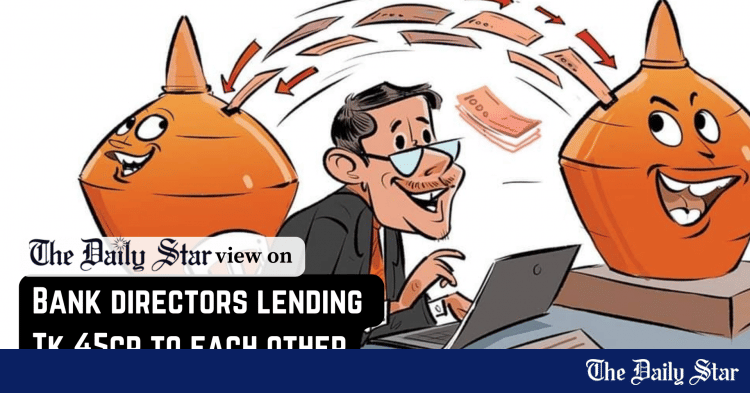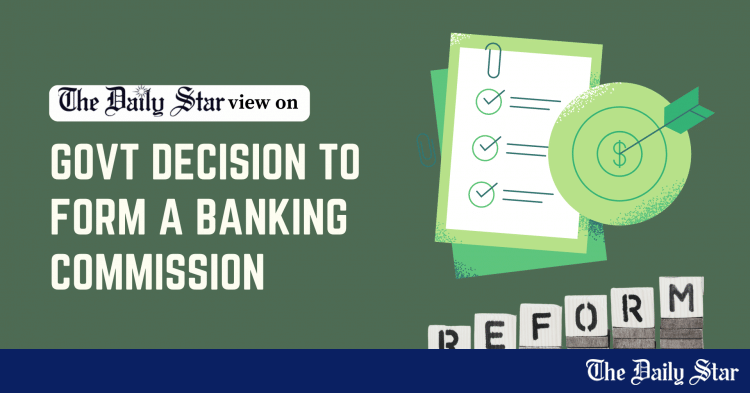Saif
Senior Member
- Joined
- Jan 24, 2024
- Messages
- 17,346
- Likes
- 8,373
- Nation

- Residence

- Axis Group


Why have loan defaults risen sharply?
However, NPLs rose 38.5 percent year-on-year to Tk 1,82,295 crore by the end of March, accounting for 11.11 percent of the total loans disbursed in the banking system, according to central bank data.
Why have loan defaults risen sharply?

Default loans in the banking sector have hit a historic high at a time when the Bangladesh Bank has just provided a roadmap to reduce the volume of bad debts.
In line with conditions set by the International Monetary Fund (IMF) for securing a $4.7 billion loan, the central bank in February unveiled a roadmap consisting of 17 action plans for reducing non-performing loans (NPLs).
However, NPLs rose 38.5 percent year-on-year to Tk 1,82,295 crore by the end of March, accounting for 11.11 percent of the total loans disbursed in the banking system, according to central bank data.
If written-off and rescheduled loans and loans with court injunctions are added, the actual volume of bad debts will be as much as Tk 5 lakh crore, industry people said.
This raises the question as to why NPLs have increased abnormally at a time when the government has promised to the IMF it would reduce it to a tolerable level by 2026.
There is no quick and easy answer in this regard as the problem persisted even after the central bank introduced a relaxed loan rescheduling and one-time exit policy for defaulters in 2019.
Under the policy, defaulters were allowed to regularise their loans for 10 years by only paying a 2 percent down payment instead of the existing 10 to 15 percent. And while this was a big benefit for defaulters, it acted as a slap in the face for good borrowers.
With bad loans in the banking sector amounting to Tk 94,330 crore when the policy was introduced, the then Finance Minister AHM Mustafa Kamal had said NPLs were a matter of grave concern but still manageable.
"From today, NPL will not increase," he added while announcing the policy.
Other than the relaxed rescheduling policy, the BB unveiled several policy measures over the years in favour of borrowers and other vested quarters who influenced the policymaking.
For example, the cheaper loans thanks to the 9 percent lending rate cap, the loan moratorium facility amid the Covid-19 pandemic, and the loan classification facility were major policy supports. However, rather than reining in NPLs, these measures seem to have only motivated defaulters.
The central bank in April 2020 introduced the 9 percent lending rate cap that remained until June 2023. Borrowers who took loans during that period have to pay more than 16 percent now in interests. This perhaps has motivated many to refrain from paying their instalments.
Besides, borrowers enjoyed a loan moratorium benefit amid the Covid-19 pandemic from 2020 to 2022. At the time, businesspeople did not have to repay bank loans. But when this facility was withdrawn, borrowers faced a sudden pressure to pay back and many eventually became defaulters.
For a long time, borrowers enjoyed easy repayment terms due to the loan classification facility. However, recently, the BB tightened the loan classification rules to be in line with the IMF prescription.
In April this year, the central bank tightened the definition of overdue term loans to conform to international best practices.
As per the new rules, banks have to treat a loan as overdue if a borrower does not make any instalment payment within three months after the due date while it was six months previously.
Additionally, irregularities, scams and weak corporate governance in the banking sector alongside the lack of proper monitoring by the BB are also responsible for the record levels of bad loans.
Default loans in the banking sector have hit a historic high at a time when the Bangladesh Bank has just provided a roadmap to reduce the volume of bad debts.
In line with conditions set by the International Monetary Fund (IMF) for securing a $4.7 billion loan, the central bank in February unveiled a roadmap consisting of 17 action plans for reducing non-performing loans (NPLs).
However, NPLs rose 38.5 percent year-on-year to Tk 1,82,295 crore by the end of March, accounting for 11.11 percent of the total loans disbursed in the banking system, according to central bank data.
If written-off and rescheduled loans and loans with court injunctions are added, the actual volume of bad debts will be as much as Tk 5 lakh crore, industry people said.
This raises the question as to why NPLs have increased abnormally at a time when the government has promised to the IMF it would reduce it to a tolerable level by 2026.
There is no quick and easy answer in this regard as the problem persisted even after the central bank introduced a relaxed loan rescheduling and one-time exit policy for defaulters in 2019.
Under the policy, defaulters were allowed to regularise their loans for 10 years by only paying a 2 percent down payment instead of the existing 10 to 15 percent. And while this was a big benefit for defaulters, it acted as a slap in the face for good borrowers.
With bad loans in the banking sector amounting to Tk 94,330 crore when the policy was introduced, the then Finance Minister AHM Mustafa Kamal had said NPLs were a matter of grave concern but still manageable.
"From today, NPL will not increase," he added while announcing the policy.
Other than the relaxed rescheduling policy, the BB unveiled several policy measures over the years in favour of borrowers and other vested quarters who influenced the policymaking.
For example, the cheaper loans thanks to the 9 percent lending rate cap, the loan moratorium facility amid the Covid-19 pandemic, and the loan classification facility were major policy supports. However, rather than reining in NPLs, these measures seem to have only motivated defaulters.
The central bank in April 2020 introduced the 9 percent lending rate cap that remained until June 2023. Borrowers who took loans during that period have to pay more than 16 percent now in interests. This perhaps has motivated many to refrain from paying their instalments.
Besides, borrowers enjoyed a loan moratorium benefit amid the Covid-19 pandemic from 2020 to 2022. At the time, businesspeople did not have to repay bank loans. But when this facility was withdrawn, borrowers faced a sudden pressure to pay back and many eventually became defaulters.
For a long time, borrowers enjoyed easy repayment terms due to the loan classification facility. However, recently, the BB tightened the loan classification rules to be in line with the IMF prescription.
In April this year, the central bank tightened the definition of overdue term loans to conform to international best practices.
As per the new rules, banks have to treat a loan as overdue if a borrower does not make any instalment payment within three months after the due date while it was six months previously.
Additionally, irregularities, scams and weak corporate governance in the banking sector alongside the lack of proper monitoring by the BB are also responsible for the record levels of bad loans.







































